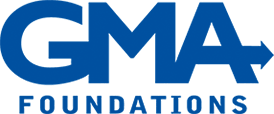
Prepare for reflection and renewal
Bylaws are intended to exert a powerful influence on foundation board behavior. Buried in the legalese, you will find the seedlings for policies that shape board structure, participation, and expectations. Board members have a duty to understand the foundation bylaws and what they mean for governance and operations.
Review your bylaws and policies every three or four years. Ideally, the practice creates a window for discussing change and transition.
The review process gives board members permission to air their concerns about board functioning in a straightforward way. A planned, periodic discussion of governance requirements and policies can depersonalize tough discussions and remind members of board expectations.
Why a Regular Review of Foundation Bylaws?
This regular review provides a context for talking about common board trouble areas, including:
Poor attendance at meetings? Review the attendance policies in your bylaws as an entry point to discuss the challenges and expectations related to regular meeting participation.
Board members that hang on beyond their usefulness to the board? Your bylaws have a section that addresses elections, term-limits, and sometimes age requirements. Reviewing this section can trigger needed discussions about board diversity, succession planning, or personal goals and expectations without pointing fingers at anyone.
A board president that does all the work? Foundation board presidents are often both cook and bottle washer. This consolidation of power is an obstacle to continuity and succession. Revisiting the bylaws can remind board members about the importance of leadership as a shared responsibility. It can also allow leaders to say where they need help.

Committees that are low performing? Organizational bylaws often outline committee structures that appear strong on paper but may be weak in practice. Asking your board to affirm its committee structures in the bylaws can open up a discussion about how well they are actually functioning.
Committee chairs that don’t rotate? Some people say that board committee leaders are like car tires. They need to be rotated regularly! Use the bylaws review to discuss your leadership structure and dynamics. Better yet, use the opportunity to discuss the challenges of cultivating new leadership.
Bylaws In Hand, Now What?
Is your board ready for reflection on its practices and effectiveness? GMA consultants specialize in designing content for meetings and gatherings that jump starts participation, and in facilitating conversations that matter.
Contact GMA’s CEO, Susan Barry at sbarry@gmafoundations.com to explore the possibilities.
